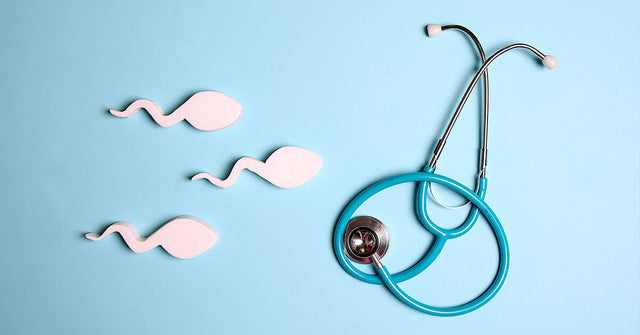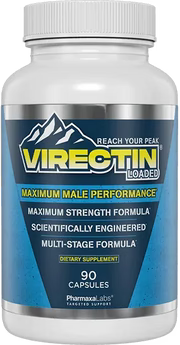Erectile dysfunction (ED) is a condition that affects millions of men worldwide, transcending age, ethnicity, and socioeconomic status. Despite its prevalence, ED remains a topic shrouded in stigma and misunderstanding. This guide aims to demystify erectile dysfunction by exploring its causes, available treatments, and practical strategies for managing and overcoming the condition. Whether you’re experiencing ED yourself or supporting someone who is, understanding the nuances of this condition is the first step toward effective management and improved quality of life.
Understanding Erectile Dysfunction
Erectile dysfunction is the inability to achieve or maintain an erection sufficient for satisfactory sexual performance. While occasional difficulty with erections is common and usually not a cause for concern, persistent ED can signal underlying health issues that warrant attention. The complexity of ED lies in its multifactorial nature, involving both physical and psychological components. Understanding the various dimensions of erectile dysfunction is crucial for effective treatment and management.
Causes of Erectile Dysfunction
Physical Causes
- Cardiovascular Diseases: Conditions such as atherosclerosis (narrowing of the arteries) can impede blood flow to the penis, making it difficult to achieve an erection. Heart disease and high blood pressure are closely linked to ED. The blood vessels in the penis are smaller than those in other parts of the body, so symptoms of cardiovascular problems may appear first as erectile dysfunction.
- Diabetes: High blood sugar levels can damage nerves and blood vessels, reducing sensation and impairing blood flow necessary for an erection. Men with diabetes are significantly more likely to experience erectile dysfunction, and it often occurs earlier in life compared to men without diabetes.
- Hormonal Imbalances: Low testosterone levels, thyroid disorders, and other hormonal imbalances can contribute to ED. Hormones play a crucial role in sexual desire and function. Conditions like hypogonadism, where the body doesn't produce enough testosterone, can lead to decreased libido and erectile difficulties.
- Neurological Disorders: Diseases like Parkinson’s, multiple sclerosis, and spinal cord injuries disrupt nerve signals essential for an erection. The nervous system is responsible for initiating and maintaining an erection, and any disruption can lead to erectile dysfunction.
- Obesity: Excess weight can lead to vascular disease and diabetes, both of which are risk factors for ED. Additionally, obesity can negatively impact self-esteem and sexual confidence, further contributing to erectile dysfunction.
- Medications: Certain prescriptions, such as antidepressants, antihistamines, and blood pressure medications, can interfere with erectile function as a side effect. It's essential to review all medications with a healthcare provider if experiencing ED symptoms.
- Substance Abuse: Chronic use of alcohol, tobacco, and illicit drugs can damage blood vessels and nerves, leading to ED. Substance abuse can also affect hormone levels and reduce libido, exacerbating erectile dysfunction.
Psychological Causes
- Stress and Anxiety: High levels of stress and anxiety can interfere with sexual arousal and performance, leading to temporary or chronic ED. Stress diverts energy away from sexual function and can create a mental barrier to achieving an erection.
- Depression: Depression often decreases libido and can disrupt the pathways that facilitate erections. The emotional toll of depression can lead to a loss of interest in sexual activity, further contributing to erectile dysfunction.
- Relationship Issues: Communication problems, unresolved conflicts, or lack of emotional intimacy can affect sexual performance and lead to ED. A strained relationship can create an environment of tension and frustration, impacting sexual desire and function.
- Performance Anxiety: Fear of sexual failure can create a cycle of ongoing erectile difficulties, exacerbating the problem over time. Worrying about erections can lead to increased anxiety, making it harder to achieve and maintain an erection.
Diagnosing Erectile Dysfunction
Proper diagnosis of erectile dysfunction involves a comprehensive evaluation that includes medical history, physical examination, and laboratory tests. Healthcare providers assess underlying health conditions, review current medications, and explore psychological factors contributing to ED. Understanding the root cause of erectile dysfunction is essential for selecting the most effective treatment.
Tests may include blood glucose levels to check for diabetes, lipid profiles to assess cholesterol levels, testosterone levels to evaluate hormonal balance, and an assessment of cardiovascular health. In some cases, specialized tests like penile Doppler ultrasound or nocturnal penile tumescence (erection) testing may be conducted to evaluate blood flow and nerve function. These diagnostic tools help in identifying whether erectile dysfunction is due to physical issues, psychological factors, or a combination of both.
Treatment Options for Erectile Dysfunction
The treatment of erectile dysfunction is highly individualized, depending on the underlying cause, severity, and patient preferences. Here’s an overview of the most common treatment modalities, each addressing different aspects of erectile dysfunction.
1. Lifestyle Modifications
Making positive lifestyle changes can have a significant impact on erectile dysfunction and overall health. These modifications address the root causes of ED and can improve the effectiveness of other treatments.
- Diet and Exercise: Adopting a balanced diet rich in fruits, vegetables, whole grains, and lean proteins can improve cardiovascular health and reduce the risk of conditions associated with ED. Regular physical activity enhances blood flow, reduces stress, and helps maintain a healthy weight, all of which contribute to better erectile function.
- Weight Loss: Losing excess weight can alleviate ED, especially when obesity is linked to other health issues like diabetes and hypertension. Weight loss can improve hormone levels, reduce inflammation, and enhance self-esteem, all of which are beneficial for erectile function.
- Smoking Cessation: Quitting smoking improves vascular health, reducing the risk of ED by restoring normal blood flow. Smoking damages blood vessels and restricts blood flow to the penis, making it harder to achieve an erection.
- Limiting Alcohol: Reducing alcohol intake can prevent the depressive effects on the nervous system and improve erectile function. Excessive alcohol consumption can lead to hormonal imbalances and nerve damage, contributing to erectile dysfunction.
2. Medications
Medications are often the first-line treatment for erectile dysfunction, especially when the condition is related to blood flow issues. These drugs are effective for many men and are easy to use.
Phosphodiesterase-5 (PDE5) Inhibitors
Medications such as sildenafil (Viagra), tadalafil (Cialis), and vardenafil (Levitra) are the most commonly prescribed treatments for ED. They work by enhancing the effects of nitric oxide, a natural chemical that relaxes muscles in the penis, increasing blood flow.
- Benefits: Effective for many men, easy to use, and has a relatively quick onset of action. They can be taken as needed or, in some cases, daily to provide more spontaneous sexual activity.
- Drawbacks: Possible side effects include headaches, flushing, indigestion, and visual disturbances. They may not be suitable for men taking nitrates for heart conditions, as the combination can cause a dangerous drop in blood pressure.
Testosterone Replacement Therapy
For men with low testosterone levels, hormone replacement can restore libido and improve erectile function. Testosterone plays a key role in sexual desire and performance.
- Benefits: Can improve sexual desire, energy levels, mood, and overall sense of well-being. It may also help in reducing body fat and increasing muscle mass.
- Drawbacks: Potential side effects include acne, sleep apnea, and an increased risk of blood clots. It's not suitable for men with prostate cancer, and long-term safety is still under investigation.
3. Mechanical Devices
For men who do not respond to medications, mechanical devices can provide an effective alternative for managing erectile dysfunction.
Penile Pumps (Vacuum Erection Devices)
These devices create a vacuum around the penis, drawing blood into it and causing an erection. A constriction ring is then applied to maintain the erection.
- Benefits: Non-invasive, effective for many men, and can be used as needed without medications. They are portable and can be a good option for those who prefer non-pharmacological treatments.
- Drawbacks: The erection may feel different, and the ring can be uncomfortable. They require proper technique and can be cumbersome to use, which may deter some men from regular use.
Penile Implants
Surgical insertion of devices into the penis allows men to control erection timing and duration. Implants can be semi-rigid rods or inflatable devices that can be pumped to create an erection.
- Benefits: High satisfaction rates, reliable results regardless of other health conditions. Implants provide a permanent solution for erectile dysfunction and do not require ongoing maintenance like other treatments.
- Drawbacks: Risks include infection, mechanical failure, and the need for surgery, which may not be suitable for all men. Recovery time and potential complications should be carefully considered before opting for an implant.
4. Psychological Counseling
For erectile dysfunction with a significant psychological component, therapy can be highly effective. Counseling addresses issues like stress, anxiety, depression, and relationship problems, which can all contribute to ED.
- Benefits: Can resolve the root psychological causes of ED, improving overall mental health and sexual function. Therapeutic approaches such as cognitive-behavioral therapy (CBT) can help in changing negative thought patterns related to sexual performance.
- Drawbacks: Requires time, commitment, and sometimes the cooperation of a partner. Progress can be gradual, and some men may find it challenging to open up about personal issues.
5. Alternative and Complementary Therapies
Some men explore alternative and complementary therapies to manage erectile dysfunction. While these options may offer benefits, it's important to approach them with caution.
Herbal Supplements
Supplements like L-arginine, yohimbine, and ginseng are often marketed for ED.
- Benefits: Some men find relief with these over-the-counter options, especially if their ED is mild.
- Drawbacks: Limited scientific evidence supports their effectiveness, and they can interact with other medications or cause side effects. The quality and concentration of ingredients can vary between products.
Acupuncture
Some studies suggest acupuncture may help improve ED by reducing stress and improving blood flow.
- Benefits: Non-invasive and may enhance overall well-being. It can be a complementary treatment alongside conventional therapies.
- Drawbacks: Evidence is mixed, and it may not be effective for all individuals. Finding a qualified practitioner is essential for safety and effectiveness.
Evaluating Health Claims vs. Reality
The marketplace is rife with products and treatments promising miraculous cures for erectile dysfunction. While reputable medical treatments have undergone rigorous testing and approval processes, many over-the-counter supplements and unproven therapies lack scientific validation. It’s essential to approach these claims critically to ensure safety and effectiveness.
- Evidence-Based Treatments: Medications like PDE5 inhibitors and therapies such as penile implants have substantial clinical evidence supporting their efficacy and safety. These treatments are backed by extensive research and are approved by medical authorities.
- Unregulated Supplements: The FDA does not regulate supplements as strictly as prescription medications. Ingredients may vary, and efficacy is often unsupported by robust research. Furthermore, some supplements can contain harmful substances or interact with other medications, posing significant health risks.
- Placebo Effect: Some alternative treatments may work through the placebo effect, where belief in the treatment’s efficacy leads to perceived improvement. This highlights the power of the mind-body connection in sexual function but should not replace evidence-based treatments for erectile dysfunction.
Potential Downsides and Precautions
While various treatments for erectile dysfunction are available, they are not without potential drawbacks. Understanding these limitations is crucial for making informed decisions about managing ED.
- Medication Side Effects: PDE5 inhibitors can cause headaches, dizziness, and interactions with other drugs. Men with certain heart conditions or those taking nitrates should avoid these medications. It's important to consult a healthcare provider to determine the safest and most effective medication regimen.
- Surgical Risks: Penile implants involve surgical risks, including infection and device malfunction. Recovery time and potential complications should be carefully considered. Surgery is generally considered only after other treatments have failed.
- Psychological Impact: Addressing the psychological aspects of erectile dysfunction requires time and emotional investment. Men may feel embarrassed or stigmatized, potentially delaying seeking help. Overcoming these barriers is essential for effective treatment and improved mental health.
- Supplement Safety: Herbal supplements can contain undisclosed ingredients, leading to possible toxicity or adverse reactions. Always consult a healthcare provider before starting any new supplement to ensure safety and avoid harmful interactions.
Practical Tips for Managing Erectile Dysfunction
Navigating the complexities of erectile dysfunction requires a strategic approach. Here are practical tips to consider:
1. Seek Professional Help
Don’t hesitate to consult a healthcare provider if you experience persistent ED. A professional diagnosis can identify underlying causes and guide appropriate treatment. Early intervention can prevent the progression of erectile dysfunction and address any related health issues.
2. Open Communication
Discussing ED with your partner fosters understanding and reduces anxiety. Honest communication can alleviate performance pressure and strengthen the relationship. Open dialogue ensures both partners are on the same page and can work together to find effective solutions.
3. Adopt a Healthy Lifestyle
Implementing changes such as regular exercise, a balanced diet, quitting smoking, and reducing alcohol consumption can have profound effects on erectile function and overall health. A healthy lifestyle not only improves ED but also enhances general well-being and longevity.
4. Explore Treatment Options
Work with your healthcare provider to explore and compare treatment options. Consider factors like effectiveness, side effects, ease of use, and personal preferences when selecting a treatment plan. Combining different treatments may sometimes yield better results.
5. Manage Stress and Mental Health
Incorporate stress-reduction techniques such as meditation, yoga, or deep-breathing exercises into your routine. Seeking therapy or counseling can also be beneficial in addressing psychological factors contributing to ED. Mental well-being is closely linked to sexual health, and managing stress can significantly improve erectile function.
6. Educate Yourself
Stay informed about ED by reading credible sources and staying updated with the latest research. Understanding your condition empowers you to make informed decisions about your health. Knowledge about erectile dysfunction can also help in identifying effective management strategies and avoiding misinformation.
7. Monitor Medications
Review your current medications with your healthcare provider to identify any that may contribute to ED. Adjusting dosages or switching medications might alleviate symptoms. Being proactive about medication management can prevent unnecessary erectile dysfunction related to prescribed drugs.
The Role of Partners and Support Systems
Erectile dysfunction doesn’t just affect the individual; it impacts relationships and emotional well-being. Partners play a crucial role in providing support and fostering open communication. Understanding and empathy from both parties can reduce the stress associated with ED and enhance mutual intimacy.
Moreover, support groups and counseling can offer a platform for sharing experiences and coping strategies. Knowing that others are navigating similar challenges can alleviate feelings of isolation and shame, creating a community of support for those dealing with erectile dysfunction.
Emerging Treatments and Future Directions
Advancements in medical research continue to pave the way for new ED treatments. Stem cell therapy, platelet-rich plasma (PRP) injections, and low-intensity shockwave therapy are emerging areas showing promise in clinical trials. These innovative approaches aim to offer more permanent and effective solutions for erectile dysfunction.
- Stem Cell Therapy: Aims to regenerate damaged tissues and restore erectile function by introducing stem cells into the penile tissue. This therapy holds potential for repairing vascular and nerve damage associated with ED, offering a regenerative approach to treatment.
- PRP Injections: Utilize the healing properties of a patient’s own blood platelets to promote tissue regeneration and improve blood flow. PRP therapy is believed to enhance natural healing processes, potentially improving erectile function over time.
- Shockwave Therapy: Employs low-intensity shockwaves to stimulate blood vessel growth and enhance penile blood flow. This non-invasive treatment is gaining attention for its ability to address the underlying vascular issues contributing to erectile dysfunction.
While these innovative treatments hold potential, more extensive research and long-term studies are needed to establish their safety and efficacy. The future of erectile dysfunction treatment looks promising, with ongoing advancements aimed at providing more effective and personalized solutions.
Conclusion
Erectile dysfunction is a multifaceted condition with a spectrum of causes and treatment options. Understanding the underlying factors—be they physical, psychological, or a combination of both—is essential in addressing ED effectively. From lifestyle modifications and medications to mechanical devices and therapy, the pathways to managing ED are diverse and tailored to individual needs.
While the journey to overcoming erectile dysfunction can be challenging, advancements in medical science and a growing societal openness to discussing sexual health contribute to more effective and accessible solutions. By seeking professional help, maintaining open communication, and adopting healthy habits, men can navigate the complexities of ED and reclaim their sexual health and overall well-being.
As research continues to evolve, the future holds promise for even more innovative and personalized treatments. Until then, embracing a proactive approach to health and wellness remains the cornerstone of overcoming erectile dysfunction.






